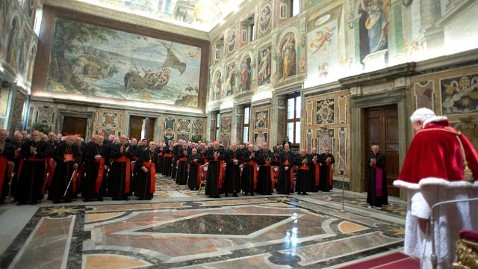ROME: The United States on Thursday pledged US$60 million in "non-lethal" assistance for the Syrian political opposition to President Bashar al-Assad as well as the first direct US aid to rebel fighters in the form of food and medical assistance.
"The US will be providing an additional US$60 million in non-lethal assistance to support the efforts of the Syrian opposition coalition over the coming months," US Secretary of State John Kerry said after talks between the 11-nation Friends of Syria and the opposition in Rome.
"We will be sending medical supplies and food to the (rebel) Supreme Military Council, so there will be direct assistance," he added.
"All Syrians... must know that they can have a future," Kerry said.
A State Department official said the US$60 million (49 million euros) in aid would be used to help local councils and communities in liberated areas in Syria, to provide basic goods and services and "fulfil administrative functions including security, sanitation and education services."
The official said the new money was in addition to US$50 million in non-lethal support Washington has already provided to help Syrian opposition activists, including communications equipment.
That aid was provided through Turkey, while the United States has also contributed some US$380 million dollars in humanitarian aid through UN agencies and aid groups.
Asked about congressional approval of the funding, Kerry told journalists he was "very confident for rapid delivery".
He said the goal was to give a boost to the opposition and show Assad that he could not use violence to resolve the conflict.
"This is the beginning of the process that will change (Assad's) calculation."
The announcement of aid came as news broke of a car bomb explosion in a suburb of the flashpoint city of Homs that left "dead and wounded", according to state news agency SANA, which blamed "terrorists" for the blast.
Kerry had earlier met for about an hour with opposition leader Ahmed Moaz al-Khatib at the 16th-century Villa Madama on a hilltop above Rome.
The Rome talks come two days before an important meeting of the main opposition National Coalition on Saturday in Istanbul, where the umbrella group is to elect a prime minister and government to run parts of Syria seized from Assad's control.
A watchdog reported, meanwhile, that rebels had seized control of the Umayyad Mosque in the second city of Aleppo after days of fierce clashes that damaged the historic building.
Regime troops were forced to withdraw at dawn, taking up positions in buildings around the landmark structure, said the Syrian Observatory for Human Rights.
Officials from the United States, Britain, France, Germany, Italy, Turkey, Egypt, Jordan, Saudi Arabia and the United Arab Emirates took part in the Rome talks, as well as EU foreign policy chief Catherine Ashton.
The Syrian opposition -- which initially vowed a boycott -- had been lured back to the meeting after the US and Britain promised specific offers of help.
In Paris on Wednesday, Kerry said he wanted to hear from Khatib about how best to end the violence in Syria, where the United Nations says at least 70,000 have died and hundreds of thousands have been uprooted since the conflict broke out in March 2011.
US media including The New York Times and Washington Post have reported that the "non-lethal" aid to be provided to the opposition could include equipment such as vehicles, communications gear and night-vision goggles.
The New York Times also reported that a US mission training rebels at a base in the region was already under way.
Russia, Assad's most powerful supporter, has kept up pressure for the two sides in the Syrian conflict to sit down for negotiations.
In Moscow, French President Francois Hollande said ahead of a meeting with Russian counterpart Vladimir Putin that a political solution to the Syrian crisis was possible within weeks.
"I think that in the next few weeks we will manage to find a political solution that will stop the conflict from escalating," Hollande told Echo of Moscow radio station in comments translated into Russian.
Hollande stressed Russia's key role as a member of the UN Security Council, where it has vetoed resolutions that would have put pressure on Assad to end hostilities.
"We must finally start the process of political dialogue that has not yet started on the territory of Syria."
"President Putin and I both understand all the seriousness of the situation. And even though our positions at the moment differ, we want to find the best solution for Syria."
- AFP/xq













